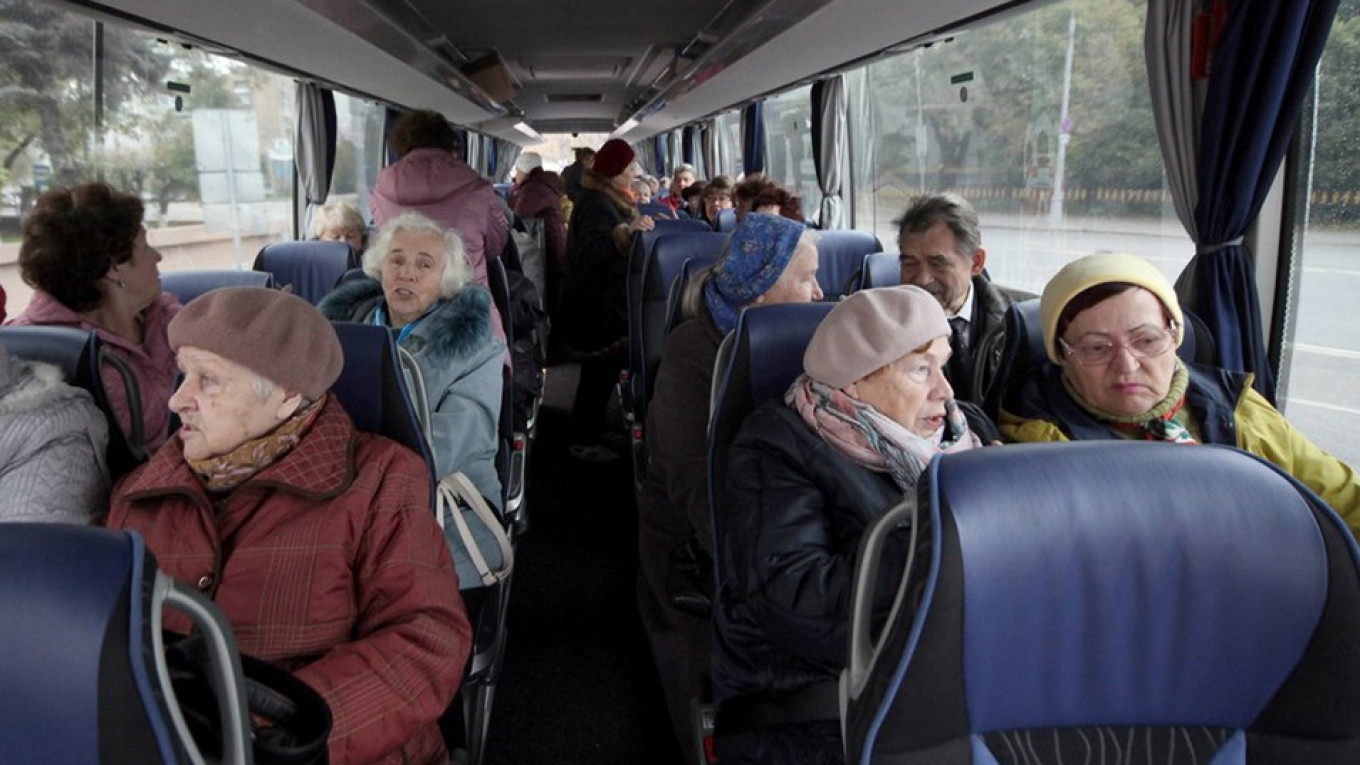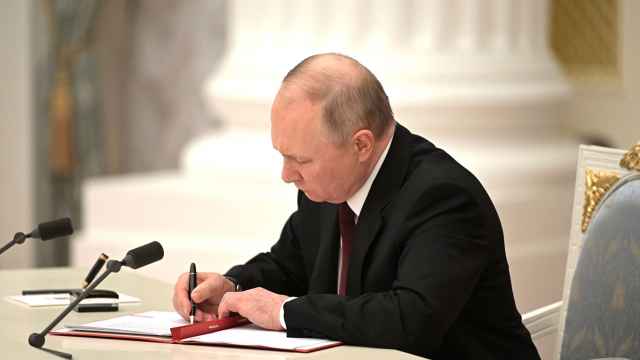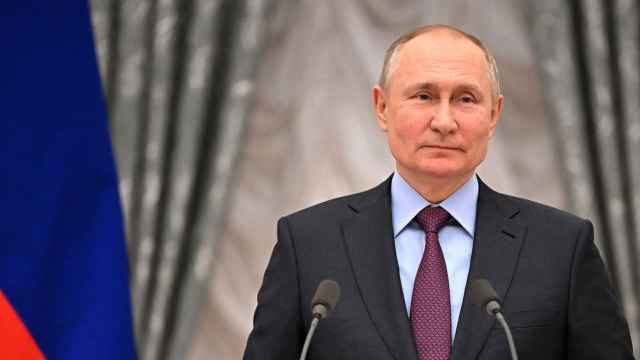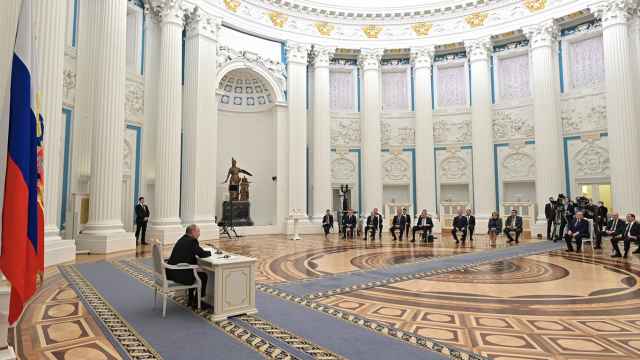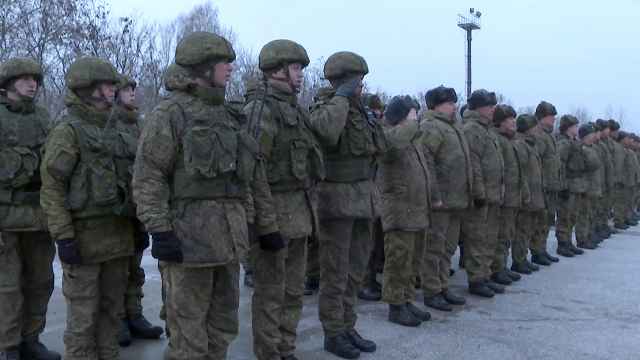Copies of a newspaper in rural southern Russia were reportedly seized by authorities after it covered the government’s controversial proposal to raise the retirement age, sparking censorship fears.
The government announced on June 14 its plan to increase the retirement age in the next decade, arguing that the reform would ease pressure on the national budget. But critics say the announcement was timed for the opening day of the World Cup in Russia to bury the highly unpopular news.
Authorities in the North Caucasus region of Stavropol “strongly recommended” that local newspaper editors avoid covering the reforms in case of unrest, a source in the regional administration told the local Newstracker.ru website Monday.
Many residents in the rural area rely on the local newspaper as their main source of information.
A regional publisher later reportedly withdrew copies of the Blagodarnenskiye Vesti newspaper after it was sent to print with an article headlined “Goal: Live to Retirement.”
The publication was re-printed without the offending piece, the unnamed source told Newstracker.ru.
A search on the newspaper’s website for the article yielded no results. The last time the publication covered the pension issue was in March 2017.
The regional administration source said Stavropol’s elderly population, whose news diet largely relies on state-run outlets and who will be disproportionately affected by the pension reforms, can easily fall prey to state censorship.
With moves like the destruction of the newspaper, “they find themselves in an information vacuum,” he told reporters.
A Message from The Moscow Times:
Dear readers,
We are facing unprecedented challenges. Russia's Prosecutor General's Office has designated The Moscow Times as an "undesirable" organization, criminalizing our work and putting our staff at risk of prosecution. This follows our earlier unjust labeling as a "foreign agent."
These actions are direct attempts to silence independent journalism in Russia. The authorities claim our work "discredits the decisions of the Russian leadership." We see things differently: we strive to provide accurate, unbiased reporting on Russia.
We, the journalists of The Moscow Times, refuse to be silenced. But to continue our work, we need your help.
Your support, no matter how small, makes a world of difference. If you can, please support us monthly starting from just $2. It's quick to set up, and every contribution makes a significant impact.
By supporting The Moscow Times, you're defending open, independent journalism in the face of repression. Thank you for standing with us.
Remind me later.


